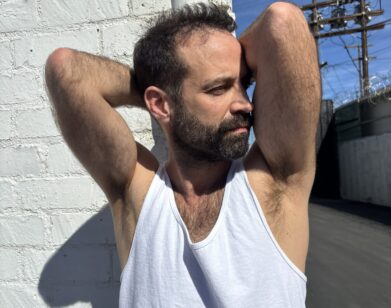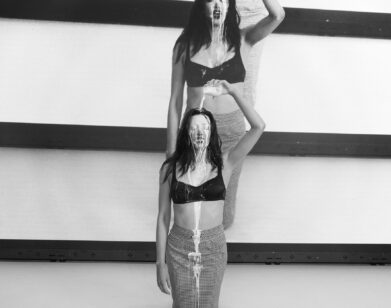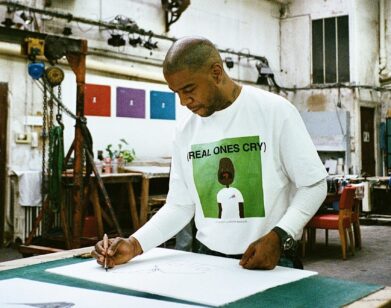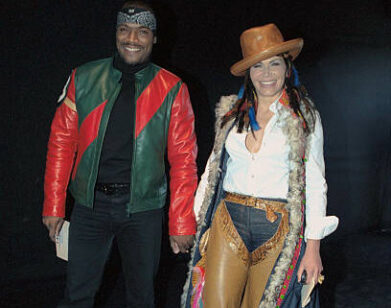The Jeff Koons Show: Reflections on a Retrospective
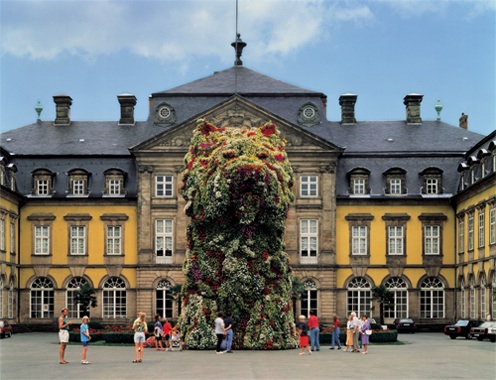
ABOVE: JEFF KOONS, PUPPY. AROLSEN CASTLE, 1992.
Last night, Soho House held a screening of Alison Chernick’s documentary, The Jeff Koons Show (2004), with the director on hand to discuss.
“I would say within the 20th century the only parallels will be Picasso and Duchamp,” Jeff Koons proclaims to the cameras. The year is 1992, and Koons stands in front of Puppy (1992), describing the impact of his own work. His confidence is almost comical. This is a bit of an unsettling way to begin Alison Chernick’s documentary on Koons’s work; the artist portrayed in the rest of the documentary seems much more modest and grounded. He acknowledges other 20th century influences—Jasper Johns, Robert Rauschenberg, Andy Warhol. Famous faces of contemporary like Jerry Saltz, Julian Schnabel and Mary Boone sing Koons’ praises: his rejection of originality is, in itself, an original statement; the porcelain sculptures of Koons and his first wife the porn star Cicciolina having sex are not gratuitously explicit, they are honest and invoke the innocence of pleasure. Saltz even goes so far as to describe Koons’s floral as Puppy Jeffersonian, saying “everyone is equal in the eyes of Puppy.” The only person not enamored with Koons is a representative from the Family Defense Committee, whose mere presence onscreen causes the audience to burst into laughter.
Perhaps the jarring opening footage is Chernick’s way of acknowledging the polarization Koons still causes in the art world. While the artist’s work may sell for millions, not everyone is a fan of Koons’s cultivation of controversy.
Last night’s screening was something of a retrospective for a retrospective; The Jeff Koons Show is now eight years old and ends with the beginning of the “Celebration” series. The documentary holds up well; ” ‘Celebration’ is where he’s at now, so I feel like it’s still up to date, except that he’s had eight children and that was at two,” Chernick joked to the audience. Would Chernick change anything about her documentary or the art experts she interviews? “Chuck Close, I probably wouldn’t have chosen now because I think he’s somewhat irrelevant,” she explains, “but everyone added something.”
The Jeff Koons Show is Chernick’s first art documentary and is followed by Matthew Barney: No Restraint (2011). Chernick is currently working on a fiction film.

